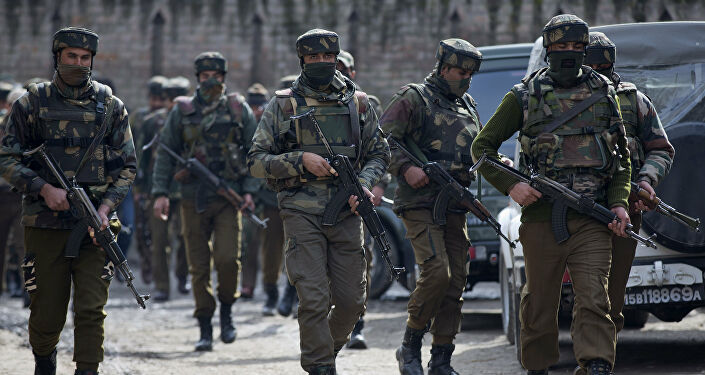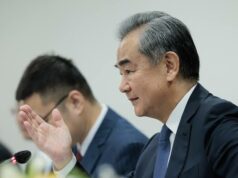After Special Status Abolition Grassroots Democracy Blooms In Kashmir

The self-rule has for J& K was the plank on which the State Politicians ruled the roost for nearly 70 years since 1947. Pakistan wanted the region to be part of their territory and so followed it’s wish with a tribal attack. An instrument of accession was signed, just in nick of time to save around two third of the state from going into slavery under Pakistan. The Indian Union meanwhile gave the state a temporary special status under Article 370 for democracy to go to the roots i.e. village level.
However the prevailing political system in the State took its own course and things became bleak till the Indira-Sheikh Accord was signed. This was the outcome of negotiations between the National Conference and India on the autonomy of the state. The accord granted the Indian parliament power to make laws related to the “prevention of activities directed towards disclaiming, questioning or disrupting the sovereignty and territorial integrity of India or bringing about secession of a part of the territory of India from the Union…”
However some of the dubious provisions of the special status in question had to be dilutes in 1964 itself, when the state’s prime ministership was reduced to chief ministership.
Also the Indian constitution applied in Jammu and Kashmir could be altered or repealed by an order of the President under Article 370, each individual proposal in this behalf being considered on its merits.Along with other provisions, the said agreement reaffirmed the accession to India.
Following the fallout between the Bharatiya Janata Party and People’s Democratic Party in June 2018, the then Jammu and Kashmir governor announced local bodies elections in the state for the first time in 13 years. Due to the security threat and resentment towards authorities, polls saw lower turnout amid a boycott from major Kashmiri parties.
Following the fallout between the Bharatiya Janata Party and People’s Democratic Party in June 2018, the then Jammu and Kashmir governor announced local bodies elections in the state for the first time in 13 years. Due to the security threat and resentment towards authorities, polls saw lower turnout amid a boycott from major Kashmiri parties.
While stories of bloodshed, conflict, and terror attacks continue to dominate the headlines about Kashmir, elected members of local bodies formed in 2018 have been silently working towards the development of the state and resolving everyday issues for two years.
Village-level elected body head Mohammad Aalam Din Jangel managed to achieve what major political parties in India-administered Kashmir, such as the People’s Democratic Party and the National Conference, were unable to during years of being in power. He managed to build an eight-kilometre metal road between Haeril and Monbal—villages in northern Kashmir’s Kupwara district, the demand for which had been pending for 15 years.
In 2018, the local bodies election, amid a boycott from the People’s Democratic Party (PDP) and National Conference (NC) over security concerns, the Bharatiya Janata Party bagged 100 seats (24 contested and 76 uncontested), Congress won 157 seats (79 contested and 78 uncontested), but the greatest number of seats were grabbed by independent candidates, at 178 (103 contested and 75 uncontested).
Junaid believes that the Modi-led government has buried the remaining 10% of the “autonomous status”, which ultimately benefits 250,000 people (Valmikis, Bakrwals, and Kashmiris from Pakistan-administered Kashmir) living in the state by giving them rights.
Reiterating Junaid’s stance, Salam staunchly believes that Kashmir is an integral part of India, but an injured part of India, something that needs to be fixed, but the diagnosis has been wrong.
He says: “Kashmiris gave chance to guns for solution, we gave chance to counter-insurgency groups too, Hurriyat was also welcomed. Same was with NC, PDP, Congress. BJP had no mandate here. They had no acceptance here. And [Article] 370 is no big deal, but we need to see development as they promised while downgrading us to a UT [union territory]”.
With no major political party in power in Jammu and Kashmir and with the scrapping of Article 370 and 35A, the now union territory is in a political vacuum, wherein grassroots-level bodies are emerging as major players, as per Mir Junaid, president of the Jammu and Kashmir Workers’ Party.
Among the independent candidates was 26-year-old Abid Salam, a documentary filmmaker, who won in his ward in the terror hotbed Baramulla to become youngest corporator in the state. Salam tells Sputnik that when major parties boycotted the elections, people like him in the town, including shop and business owners, decided to contest the vote, because that is the real essence of democracy where people at the ground-level get to become representatives.
By boycotting local bodies’ elections, the PDP and NC must have been regretful and understood the importance and repercussion of ignoring grassroots democracy.
“The first thing that I did after getting elected was building [a] school for girls so that they don’t have to stop further studies. Even the concept of sanitary napkins is rarely talked about. With lockdown during COVID, the distribution of the same was among key efforts”, he says.
Then on 5 August 2019, the Government of India stripped the state of its autonomous status and bifurcated it into two Union Territories of J&K and UT of Ladhak. The parliamentary action was followed by a sort of a shutdown in the Kashmir part of state. There was detention of the leaders of major political parties and various separatist leaders in order to prevent incitation of violence by these elements.
A year on, the demand for reinstating the autonomous status for the state continues by the sidelined political parties of the UT. while neighbouring Pakistan also has been trying to incite the Separatists but achieving no success.
However, Junaid says that both the PDP and the NC were playing passing the parcel of power, but with Article 370 no longer in place, they have lost their political agenda – the basic constitution of their existence has been taken away.
Though, expressing discontentment with the central government, Salam says that during local bodies elections, they were assured of security, but today the police themselves take it in writing from them that there is no threat to their lives and they don’t need security.
This year, as a desperate attempt by Pakistan, Jammu and Kashmir has witnessed a spurt in the killings of village-level elected leaders and local body members at the hands of terror groups. Last month, a BJP rural body leader was killed by militants in the Kulgam district.
Similar deaths were recorded in July and previous months, resulting in panic among four southern districts in Kulgam, Shopian, Anantnag, and Pulwama, with elected members resigning from their posts.



